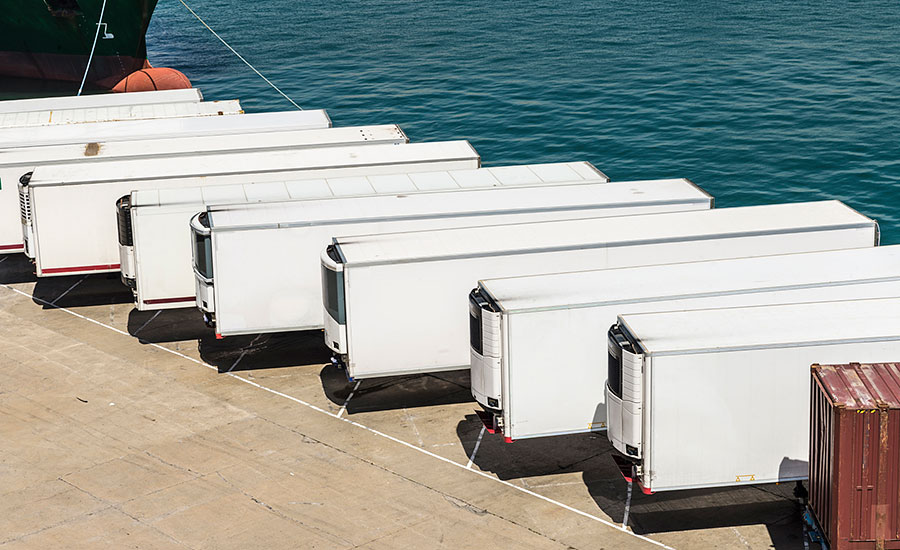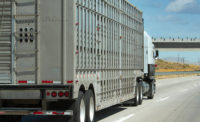Regulations & Legislation
FDA sanitary transportation rule does not automatically exempt meat, poultry

Although the final rule exempts certain transportation operations (e.g., sea vessel and air) and food, including food located in food facilities that are exclusively regulated by FSIS, FDA does not exempt meat and poultry products from the rule once they leave the FSIS-inspected establishment.
On April 6, 2016, the Food and Drug Administration (FDA) published in the Federal Register its long-awaited final rule on Sanitary Transportation of Human and Animal Food (Final Rule). The Final Rule is the sixth of seven final regulations that implement the Food Safety Modernization Act of 2011.
The final rule generally requires those engaged in the motor or rail transportation of human and animal food to use sanitary transportation practices to ensure the food is not transported under conditions that may render the food “unsafe,” i.e., adulterated. Although the final rule exempts certain transportation operations (e.g., sea vessel and air) and food, including food located in food facilities that are exclusively regulated by FSIS, FDA does not exempt meat and poultry products from the rule once they leave the FSIS-inspected establishment. FDA explains in the preamble to the final rule that even though FSIS requires its regulated entities to “address sanitation during transportation,” FSIS “does not have requirements that directly address transportation operations once they leave the FSIS-inspected facilities.”
The final rule applies to shippers, loaders, carriers and receivers engaged in transportation operations of food, i.e., all activities associated with food transportation that may affect the sanitary condition of food, including cleaning, inspection, maintenance, loading and unloading, and operation of vehicles and transportation equipment. Transportation operations must be conducted under conditions and controls necessary to prevent food from becoming unsafe. These controls may include, for example, segregation, isolation, use of packaging, and adequate temperature control. Vehicles and transportation equipment design and maintenance must also prevent food from becoming “unsafe,” including, where appropriate, adequate temperature control. Vehicles and transportation equipment should also be stored to prevent contamination or pest infestation.
The final rule provides many specific requirements for those involved in transportation operations, including the following:
• Shippers: people who arrange for the transportation of food in the U.S by a carrier or multiple carriers sequentially. Shippers are required to, among other things, develop, implement and provide written specifications to the carrier (and loader where appropriate) on the sanitary specifications for transportation vehicles, equipment and operating temperature under the conditions of shipment. The shipper must consider the type and production phase of foods and the intended use of the vehicle and equipment when developing such specifications.
• Loaders: people who load food onto a motor or rail vehicle for transportation. Loaders are required to ensure the supplier specifications are met for foods that are not fully enclosed in packaging and to verify cold storage containers are adequately prepared and meet sanitary conditions.
• Receivers: people who receive food at a point in the U.S. after transportation, despite whether that person represents the final point of receipt for the food. Receivers are required to assess that the food was not subjected to significant temperature abuse.
• Carriers: include anyone who physically moves food by rail or motor vehicle. Carriers may be made responsible for sanitary conditions by a written agreement with the shipper.
FDA recognizes that a shipper, loader, carrier or receiver may be subject to these transportation operation requirements in multiple capacities, e.g., the shipper may also be the loader and the carrier. The final rule allows entities to reassign, in a written agreement, certain responsibilities to another party subject to the final rule. Responsibility for ensuring transportation operations are carried out in compliance with all requirements must be assigned to competent supervisory personnel. If a shipper, loader, carrier or receiver becomes aware of a possible material failure of temperature control or any other condition during transportation that may render food unsafe, that person must take appropriate action to ensure the affected food is not sold or distributed unless a determination of safety is made by a qualified individual.
In addition, the final rule includes training requirements for carriers, where the carrier is responsible for the sanitary conditions during transportation operations. Recordkeeping is required for specifications and operating temperatures that the shipper provides to carriers and for written agreements and procedures for a period of 12 months beyond when agreements and procedures are in use.
The compliance date for the final rule is April 6, 2017, except for small businesses which must comply within two years. Failure to comply with the requirements of the final rule would be a prohibited act under the FD&C Act. NP
Looking for a reprint of this article?
From high-res PDFs to custom plaques, order your copy today!






